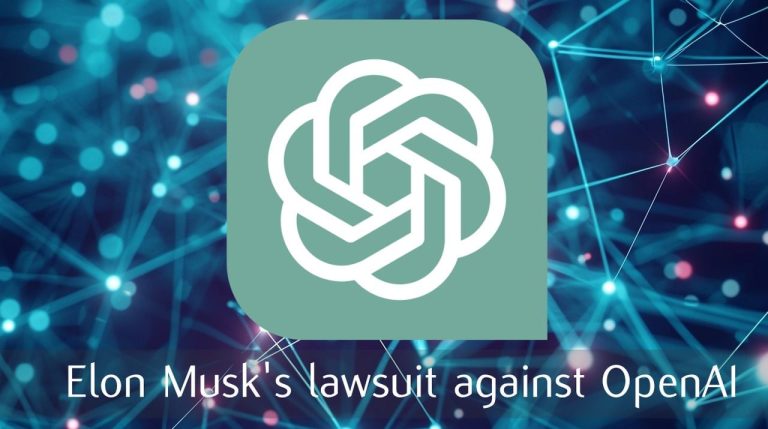Elon Musk is concerned that OpenAI they’ve strayed from their original path, prioritizing profits over the open-source and non-profit ideals Musk envisioned at the beginning. This is a lawsuit about principles, about the direction of artificial intelligence, and about what happens when a vision for the future of technology is at risk of being compromised.
Back in 2015, Elon Musk, along with other tech visionaries, set up OpenAI with a clear mission: to advance digital intelligence in a way that could benefit humanity as a whole. Elon Musk even put in $50 million to kickstart this venture. The goal was to develop artificial intelligence that was open to all—not locked away behind corporate doors. But now, it seems things have taken a different turn.
On February 29, 2024, Elon Musk filed a lawsuit against OpenAI. His claim? That they’ve veered off course, becoming more focused on making money than on the greater good. One of Elon Musk’s main gripes is their exclusive partnership with Microsoft regarding the GPT-3 technology. Elon Musk sees this as a betrayal, a move away from the open sharing of AI advancements that Musk had intended.
Elon Musk lawsuit against OpenAI
Elon Musk’s worries don’t stop there. He is also uneasy about the makeup of OpenAI’s board. It appears to Elon Musk that they’ve been reshaped to prioritize commercial success over the public’s interest. Musk is questioning the motives of co-founder Sam Altman, wondering if his investment decisions are truly aligned with the organization’s philanthropic roots.
Here are some other articles you may find of interest on the subject of OpenAI
The stakes of this lawsuit are incredibly high. If OpenAI has indeed developed Artificial General Intelligence, or AGI, the ramifications could be enormous. AGI has the potential to transform industries, economies, and societies. But who governs this technology? Who ensures it’s used responsibly? These are the questions at the heart of his legal challenge.
The world of AI has been buzzing with excitement over recent breakthroughs, particularly in deep learning and Transformer algorithms. These advancements have opened up new possibilities, but they’ve also sparked a debate about whether AI technology should be open-source or proprietary. Elon Musk’s lawsuit brings this debate into the spotlight, forcing the tech community to confront the ethical implications of AI development.
Elon Musk not just fighting for the soul of OpenAI; he is also fighting for the future of AI itself. Elon Musk believes that developers have a responsibility to balance innovation with the public’s welfare. The direction that OpenAI takes could set a precedent for how AI is managed and deployed globally.
This legal battle isn’t just about one company or one technology. It’s about setting the course for how AI will evolve and how it will affect humanity. It’s a reminder that with great power comes great responsibility, and that those who lead the charge in technological advancement must always consider the broader impact of their actions.
As this case unfolds, it will undoubtedly shape the conversation around ethical AI. It will force us to ask tough questions about the role of AI in society and how we can harness its potential for the common good. The outcome of this lawsuit will have far-reaching implications, influencing not just OpenAI’s trajectory but the future of AI development worldwide.
So, as you watch this legal drama play out, remember that it’s not just about corporate disputes or technological secrets. It’s about the vision we have for our future and the kind of world we want to live in. It’s about ensuring that as we step boldly into the age of artificial intelligence, we do so with our eyes wide open, guided by principles that put humanity first.
Filed Under: Technology News, Top News
Latest timeswonderful Deals
Disclosure: Some of our articles include affiliate links. If you buy something through one of these links, timeswonderful may earn an affiliate commission. Learn about our Disclosure Policy.

